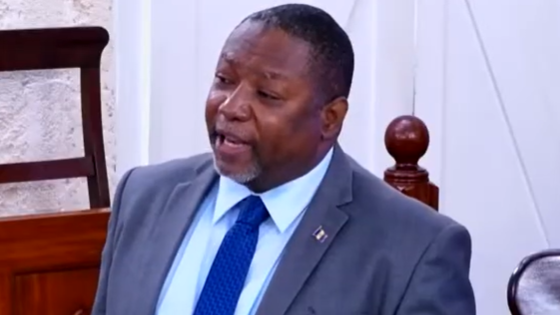Barbados is set to receive its final tranche of loans totalling approximately $116 million from the International Monetary Fund (IMF), following the successful completion of the country’s economic reform programme, the financial institution has announced.
The IMF executive board on Friday concluded the fifth and final reviews under the Extended Fund Facility (EFF) and the Resilience and Sustainability Facility (RSF) arrangement with Barbados.
The bank said this would allow an immediate disbursement of about US$19 million (BDS$38 million) under the EFF arrangement and about US$39 million (BDS$78 million) under the RSF arrangement.
The Washington-based lender of last resort disclosed that this would bring its total disbursements to Bridgetown to approximately US$309 million (BDS$618 million)–US$116 million (BDS$232 million) under the EFF, and US$193 million (BDS$386 million) under the RSF.
Prime Minister Mia Mottley has said that although the seven-year arrangement with the bank has ended, her government will keep it on “speed dial” in case emergency assistance is needed.
Barbados entered into an agreement with the IMF under the EFF arrangement in October 2018. The programme, initially for about US$145 million (BDS$290 million), was aimed at restoring debt sustainability, strengthening the weak external position, and improving growth prospects. It was augmented in June and December 2020 due to the COVID-19 pandemic, bringing total access to about US$225 million (BDS$450 million). In early 2023, Barbados entered a new IMF arrangement, supported by the EFF and the RSF, focusing on further reforms and climate resilience.
On Friday, Deputy Managing Director and acting chair of the executive board, Bo Li, said the implementation of Barbados’ homegrown Economic Recovery and Transformation programme has remained strong, supported by the EFF and RSF arrangements.
Li said the completion of the fifth and final reviews marks the successful conclusion of the Fund arrangements.
However, while he was upbeat concerning the economic future for Bridgetown, he raised concerns about the possible impact of external shocks.
“While the outlook is stable, risks remain tilted to the downside, given the highly uncertain external economic environment and Barbados’ vulnerability to shocks and natural disasters. The authorities remain strongly committed to ensuring macroeconomic stability and implementing structural reforms to boost potential growth and build resilience,” declared the deputy IMF director.
“Maintaining strong fiscal surpluses will be necessary to achieve the public debt target of 60 per cent of GDP by FY2035/36,” Li suggested. “The authorities’ focus on strengthening revenue mobilisation and improving public financial management is appropriate. These measures will be key to preserving fiscal sustainability and creating space for public investment.”
He said that finalising ambitious reforms of state-owned enterprises is a priority, adding that the authorities are taking the necessary steps to mobilise external financing.
“The exchange rate peg remains a critical anchor for macroeconomic stability, supported by ample international reserves. Measures have been taken to strengthen the monetary policy framework and financial safety nets. Efforts to enhance the local payments market and infrastructure are advancing, with the goal of moving to a digital payments system in 2026,” the Fund executive reported.
Li advised that reforms to improve the business environment and boost growth potential are key.
He argued that important measures include advancing the digitalisation of government services and investing in skills and education.
“The authorities’ focus on boosting macroeconomic resilience to natural disasters and facilitating the transition to renewable energy is welcome,” the IMF chair added.
The IMF praised Barbados for its management of the economy, declaring that it has continued to perform well.
The bank said that growth has been robust, inflation has moderated, the fiscal and external positions have improved, and the public debt-to-GDP ratio has continued to decline.
“Economic activity in 2024 remained robust, with growth estimated at four per cent, driven by tourism, construction, and business services. Inflation moderated to an average of 1.4 per cent due to easing global commodity prices and prices of domestic goods and services,” stated the executive board.
It added: “The external position strengthened further, with the current account deficit narrowing to 4.5 per cent of GDP, supported by tourism receipts, declining import prices, and one-off current transfers. Gross international reserves reached US$1.6bn (BDS$3.2 bn) at end-2024, equivalent to over seven months of import cover, providing continued strong support to the exchange rate peg.”
The bank leaders pointed out the near-term outlook is stable.
“Growth is expected to reach 2.7 per cent in 2025, supported by construction of tourism-related projects and government investment,” it said. “Inflation is expected to pick up in 2025 due to the rising cost of non-fuel imports and some domestic agricultural products.”
The executives reported that the performance of the programme has remained strong, with all quantitative performance criteria and indicative targets having been met.
They also announced that the government authorities exceeded the primary fiscal surplus target for FY2024/25 and are targeting 4.4 per cent of GDP for FY2025/26.
(EJ)
The post Barbados secures final IMF loans as BERT concludes appeared first on Barbados Today.


